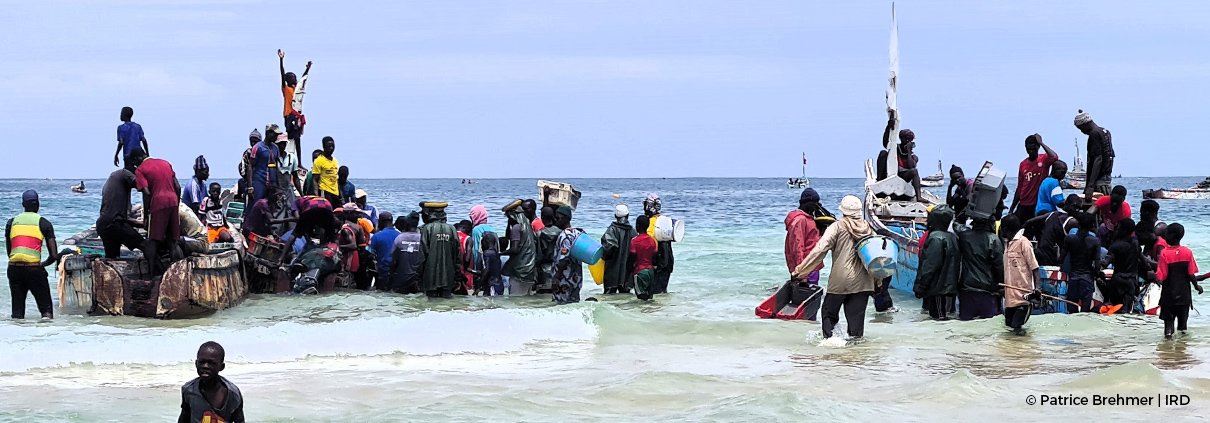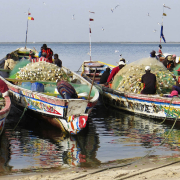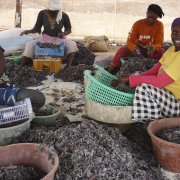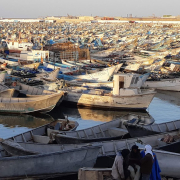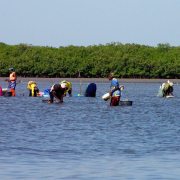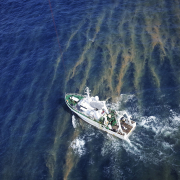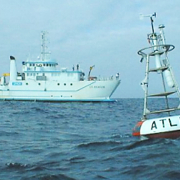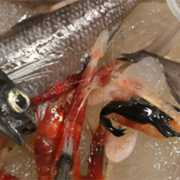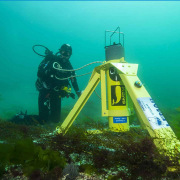Fish acoustics for monitoring the effects of overfishing and climate change on food security in West Africa
An acoustic study, whose first author is a Senegalese former thesis student of Lemar, has revealed a notable northward shift in the spatial distribution of small pelagic fish species exploited in the waters of the Sub-Regional Fisheries Commission (northwest Africa). The results, covering a period of two decades of acoustic halieutic surveys conducted by sub-regional acoustics experts aboard the F. Nansen vessel (IMR, Norway), highlight the impact of rising sea surface temperature and changes in upwelling intensity on marine ecosystems in the sub-region. Mauritania and Senegal are observing a strong increase in sea surface temperature and a decrease in its primary productivity, while the region further north is experiencing a continuous increase in upwelling. Significant spatial anomalies in sea surface temperature have contributed to the northward shift of several small pelagic fish species, including Sardinella aurita (round sardinella), species highly prized in Senegal.
The study emphasizes that the Senegalo-Mauritanian zone has experienced the most pronounced warming of surface waters among all intertropical regions in the world in recent decades. The study identified significant anomalies in sea surface temperature around Cape Blanc and to the south, ranging from 0.1 to 0.3 °C per decade, influencing fish distribution. During the study period, Sardinella aurita displayed a northward shift of approximately 180 km, coinciding with an increase in sea surface temperatures and reduced primary productivity in the south. The northward shift of small pelagic fish poses potential economic and social challenges, particularly for countries such as Senegal, where fisheries are a source of numerous jobs and contribute to food security, and Mauritania, where fisheries contribute significantly to gross domestic product.
Fishmeal factories and fishing fleets are already contributing to severe overexploitation of small pelagics, particularly Sardinella aurita. The effects of climate change (cumulative with those of overexploitation) exacerbate the pressure on these valuable fishery resources. Changes in fish distribution can disrupt the entire marine food chain, affecting biomass production and species composition.
The study underscores the need for regular monitoring and increased research efforts to better understand the dynamics of this marine ecosystem and ensure the sustainability of fishery resources, vital for the countries concerned. This is particularly important for protecting food security and the economic well-being of coastal communities in West Africa.
The results call for strengthening national fisheries research structures, expertise in acoustic halieutics, and the need for sub-regional collaboration on transboundary fish stocks to prevent potential fishing-related conflicts and manage resources sustainably. Moreover, it is urgent to address overfishing and the impacts of fishmeal production, which adds an additional threat to the effects of climate change on exploited small pelagics.
The CRODT[1], IMROP[2], INRH[3], FD[4] and IRD, are committed to advancing marine research. They emphasize the importance of adaptive management strategies, concerted at the sub-regional level (countries of the Sub-Regional Fisheries Commission (CSRP)), to address current and future challenges posed by climate change and overfishing.
Scientific Contact
*Corresponding author of the scientific publication
Article Link (Springer nature, Scientific report)
Abdoulaye Sarre, Hervé Demarcq, Noel Keenlyside, Jens-Otto Krakstad, Salaheddine El Ayoubi, Ahmed Mohamed Jeyid, Saliou Faye, Adama Mbaye, Momodou Sidibeh, & Patrice Brehmer*. Climate change impacts on small pelagic fish distribution in Northwest Africa: trends, shifts, and risk for food security Scientific Report, 12434 (2024). https://doi.org/10.1038/s41598-024-61734-8
Photographs, including aerial and underwater:
https://multimedia.ird.fr/IRD/search.do?q=Brehmer+Patrice&lang=fr
[1] Centre de recherche océanographique de Dakar Thiaroye, Senegal
[2] Institut Mauritanien de Recherches Océanographiques et de Pêches
[3] Institut National de Recherche Halieutique, Morocco
[4] Fisheries Department, The Gambia

